Reverend Guitars and Heavy Rock: Past, Present and Future
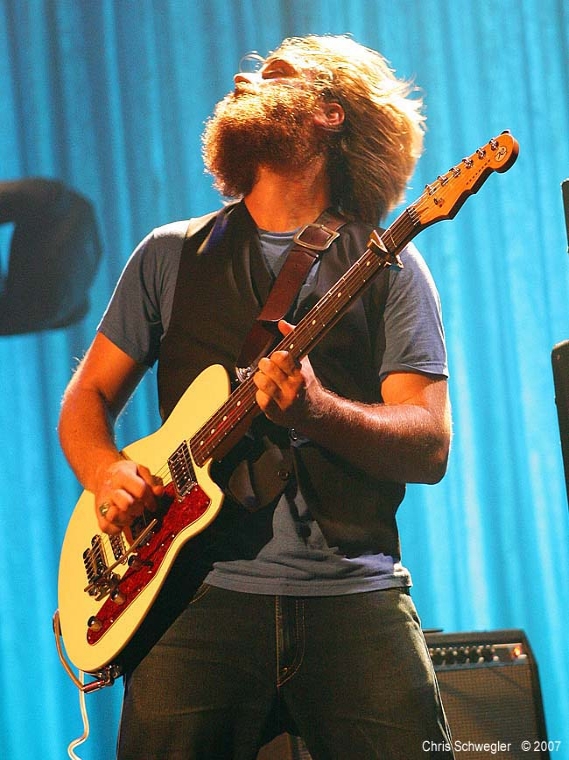
Way back in 1996, when Reverend Guitars founder Joe Naylor designed the first Reverend guitar, the philosophy was simple: Design the best guitar you know how to. Make it look cool and sound great, and put it out there and see what happens.
He wasn't too worried about the type of player or style of music they'd be suited for. So it's no wonder Reverend has been widely embraced by players of all genres. When people think of Reverend, quite often several key artists come to mind, such as country/roots legend Pete Anderson, blues slide master Rick Vito or the quirky Unknown Hinson.
But what many players don't realize is that Reverend has a long and admirable history in the heavy rock world — you know, the darker side of Reverend — and now offers more guitars than ever before for players who prefer crunch over twang.
You could say it started getting heavier in the early days of Reverend with the advent of Kid Rock. Mr. Rock and his lead guitar sidekick Kenny Olson employed Reverends on the 1998 rap-rock gem Devil Without a Cause and subsequent world tours, putting the upstart guitar company on the map. And remember, this is pre-country music Kid Rock, back when midgets, explosives, strippers and metal riffs were all part of the program!
Other notable rockers flying the Reverend flag during this era included Billy Corgan (Smashing Pumpkins), Henning Rümenapp (Guano Apes), Ron Asheton (The Stooges), Michael Lutz (Ted Nugent, Brownsville Station) and regional favorites South Normal. The original semi-hollow/phenolic laminated Reverend design served these players well, but things were about to change — quite radically — and push Reverend further into the rock realm.
Reverend introduced its first solid-body guitars in 2005. The all-wood bodies offered more sustain, clarity and feedback resistance than the original design, immediately upping the appeal to punk rockers, metal heads, shredders and any other purveyors of high gain/high volume.
These new models, sporting monikers such as Jetstream, Charger, Flatroc, Warhawk, Sensei and Volcano, ushered in a new era of hard-rock Reverend users, a diverse list including Dan Auerbach (Black Keys), Bob Balch (Fu Manchu), Jeff Young (Megadeth), Eidan Thorr/Warren Hatfield (Valient Thorr), J. Navarro (Suicide Machines), Scott Sargeant (M.O.D.), Dave Smalley/Sam Williams (Down By Law), Zach Meyers (Shinedown), Bill Kelliher (Mastodon) and many more.
Get The Pick Newsletter
All the latest guitar news, interviews, lessons, reviews, deals and more, direct to your inbox!
But probably the most significant endorsement was that of Ron Asheton, lead guitarist of proto-punk pioneers the Stooges. Their reunion and tours of the mid 2000s, along with the release of 2007's The Weirdness, put Reverend guitars front and center — in the hands of a bona fide history maker — giving Reverend street cred and worldwide exposure in the heavy rock market.
Ron passed away in 2009, but his memory lives on with the Reverend Ron Asheton Signature guitar, which is still in production, with proceeds going to the Ron Asheton Foundation, which benefits music education and the Humane Society.
While the introduction of the Reverend solid-body opened the door to the rock world, a more recent technological development is sure to solidify Reverend's reputation in the collective skulls of rockers, now and in the future: the Railhammer Pickup.
A radical, patent-pending humbucker from Joe Naylor, the Railhammer is, well, baffling at first glance. Thin rails reside underneath the wound strings, while oversize round poles are positioned beneath the plain strings. But there's a method to the madness, assures Naylor: "The thin rails sense a narrow section of string, producing a tight, clear tone. The large poles sense a wide section of string, producing a fat, thick tone. The biggest drawback with humbuckers is the low strings can sound mushy, and when you re-adjust your amp to tighten that up, then the high strings sound too bright and thin. With the Railhammer, the tonal balance is perfect. They sound great clean or dirty, but with distortion and/or dropped tunings, the clarity is a major advantage. It's a game changer."
In 2012, Reverend launched the first production guitar in the world to use Railhammer pickups, the Sensei RA, which quickly caught on with the heavy-rock crowd. This was shortly followed by the Reeves Gabrels II Signature guitar. Gabrels — lead guitarist in the Cure and a Bowie/Tin Machine alumnus — embraced the design concept. "The Railhammer is something of a breakthrough," he said. "The unwound strings sound fatter; you really notice it as you go up the neck, and the wound strings have incredible definition, even if you palm-mute."
Inspired to push the envelope even further, Reverend rolled out over a dozen new rock-friendly models at Winter NAMM 2013. The successful Sensei and Volcano series were expanded, while the classic Warhawk received a major makeover.
Two brand-new, modern-leaning designs made their debut as well: the stealthy, set-neck Bayonet, and the hot-rodded, bolt-on Kingbolt. The response? Very positive so far, with new artists coming on board such as Alex Bailey/Josh Middleton (Sylosis), Alex Asch/Robert McDonald (Cinema Sleep), Eden Gallup (In Tyler We Trust), Chuck Ragan (Hot Water Music), to name just a few.
Reverend events/marketing coordinator Penny Haas reflects on the new influx of talent: "It's refreshing to see a new wave of heavy rock players coming to Reverend. And I'm proud to say we've expanded our market without compromising who we are. The new designs are cutting edge, but they're Reverends through and through."
Well put, and kudos to the Rev.
And as a very wise man once said, "Rock on."
Marsh Gooch is a graphic designer and writer from Seattle who has been playing guitar and bass "for an awfully long time." Currently the bassist in King County Queens, he's held marketing positions with ESP Guitars, Ampeg, Line 6 and Reverend Guitars. He rocks to all kinds of music, especially classic and punk rock, and actually prefers the Damned over the Beatles. At least half the time. He can be reached via his web site, marshallgooch.com.
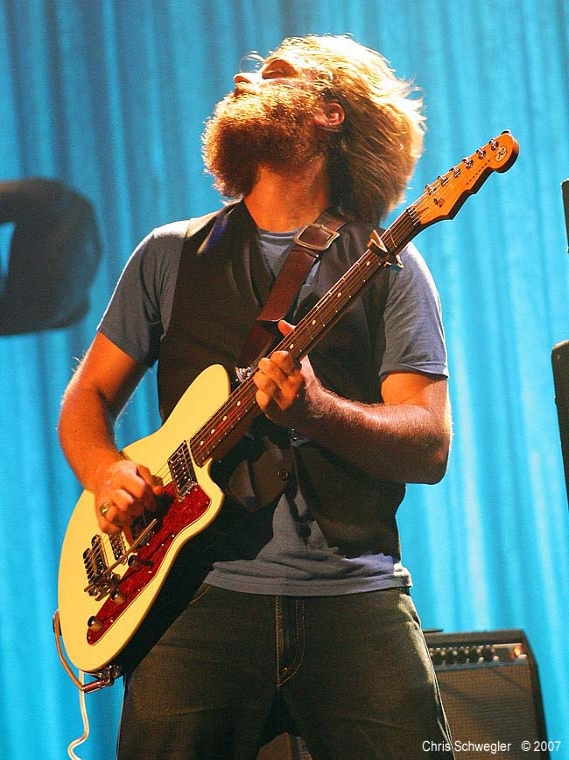
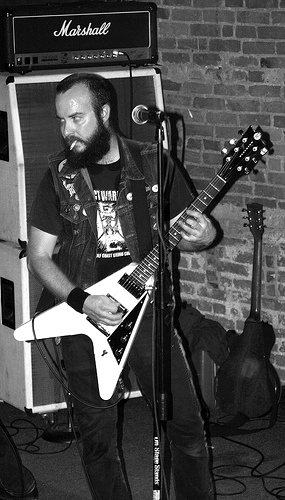
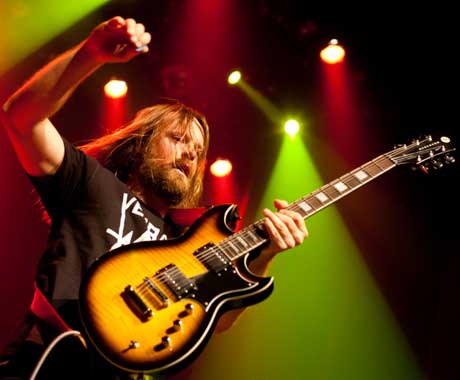
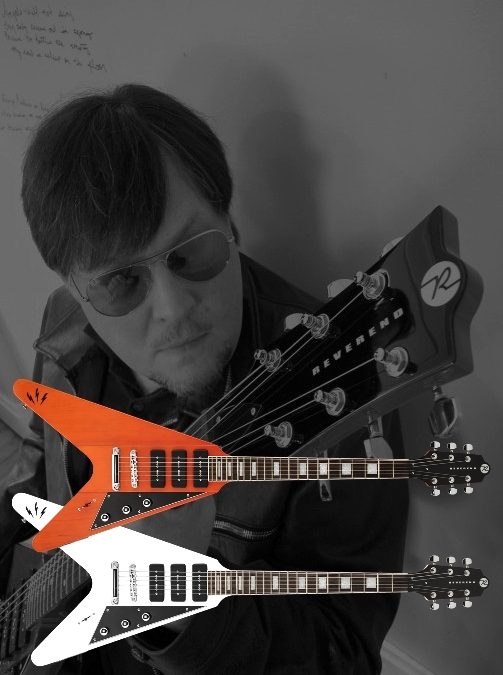
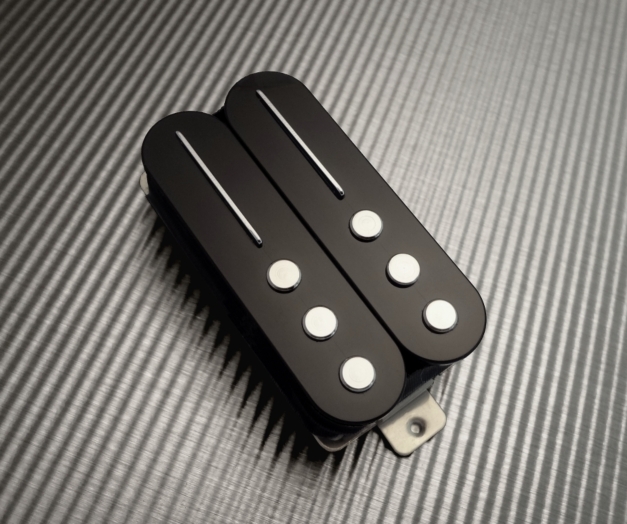
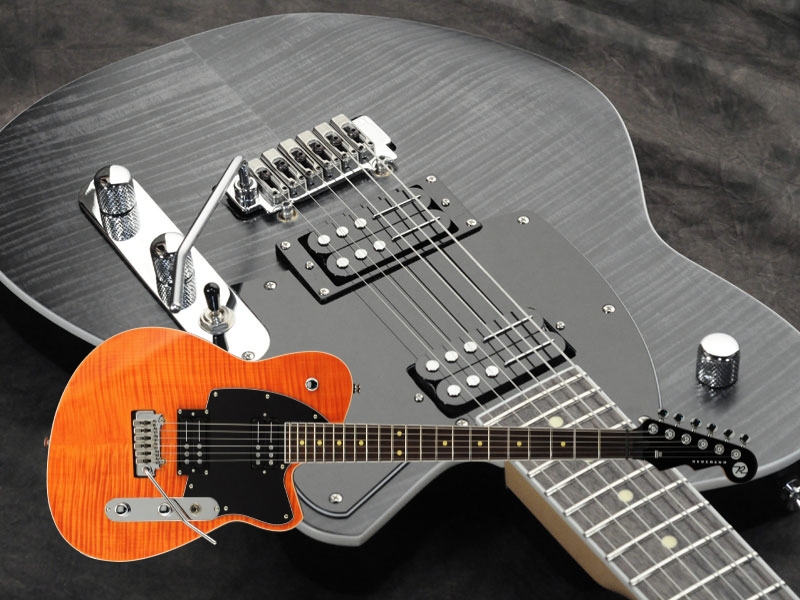
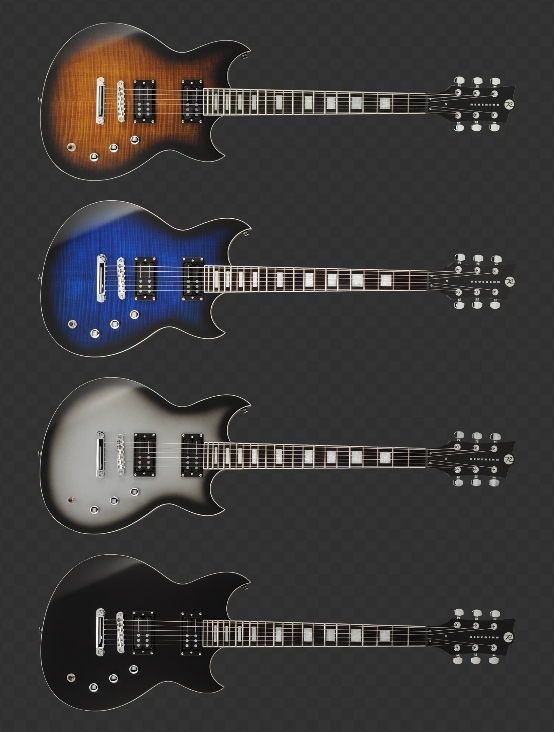
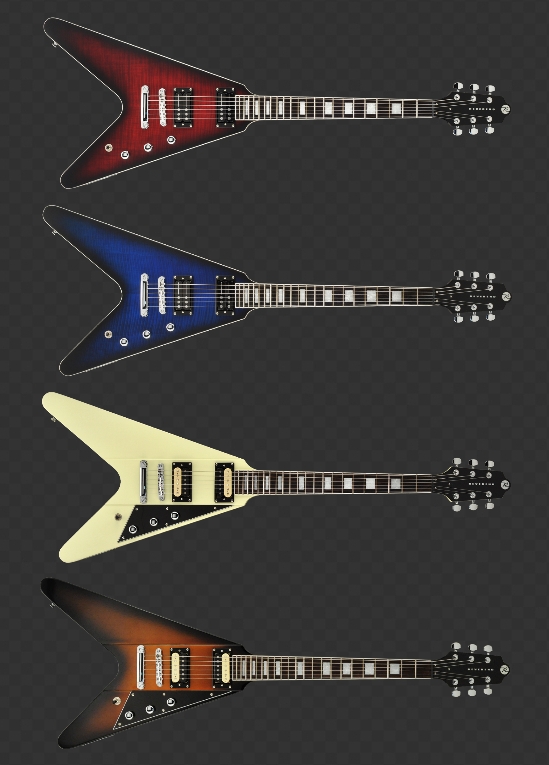
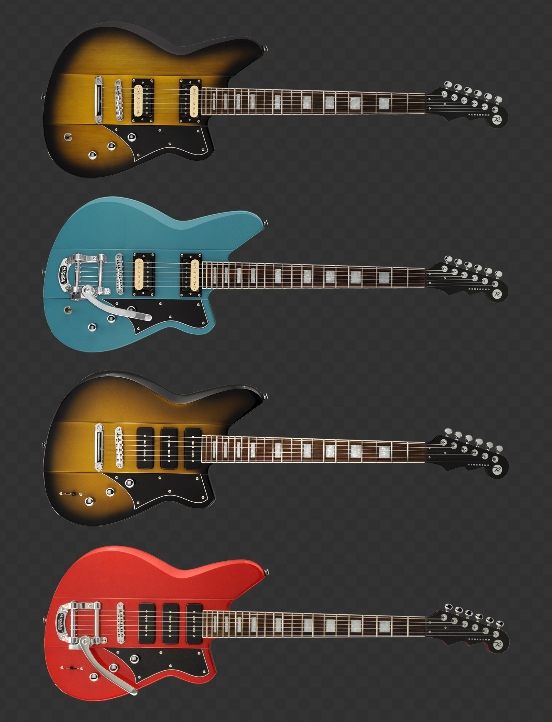
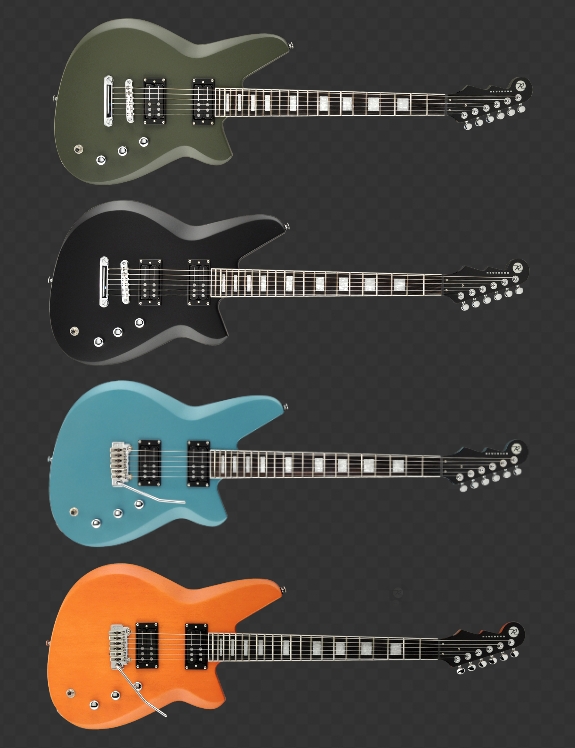
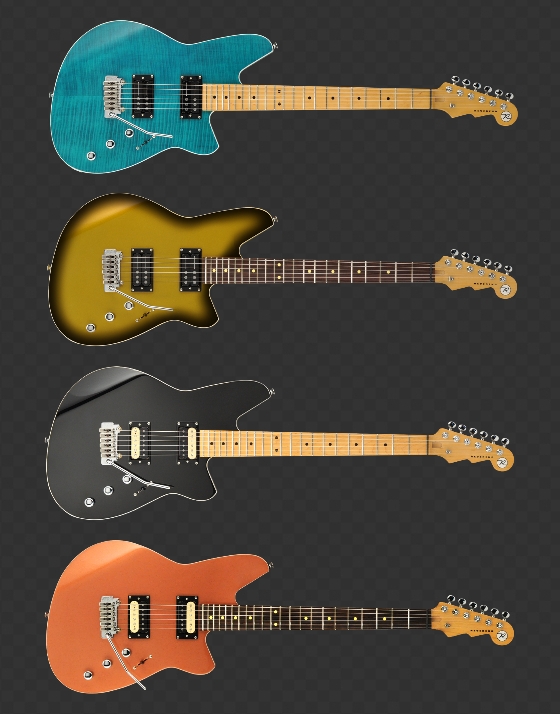
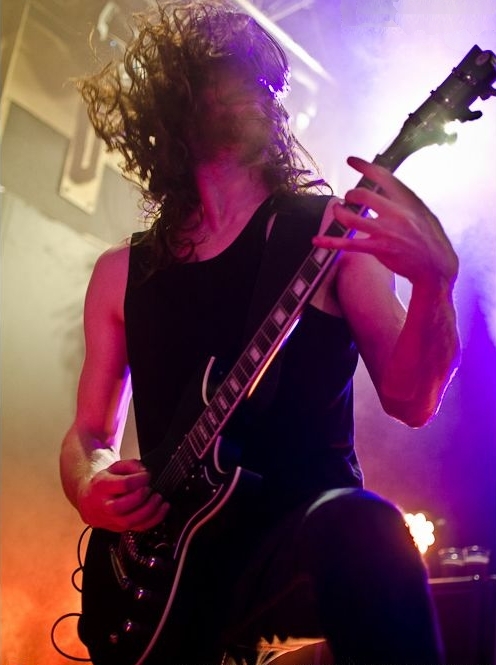
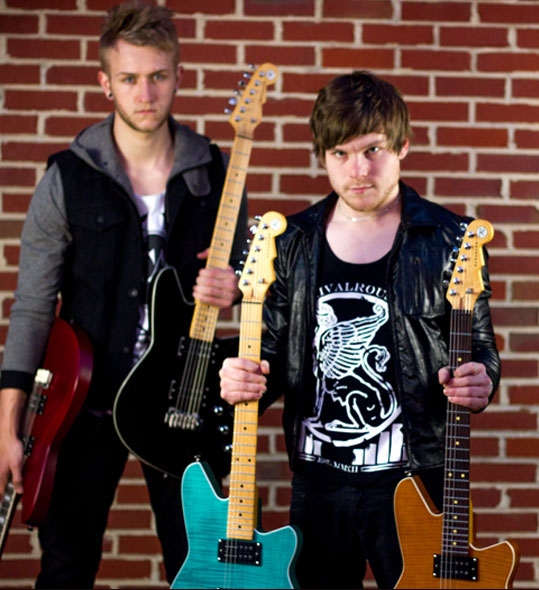
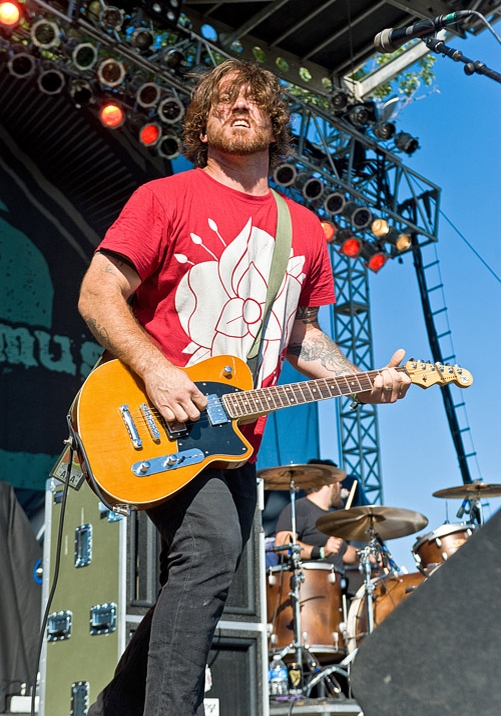
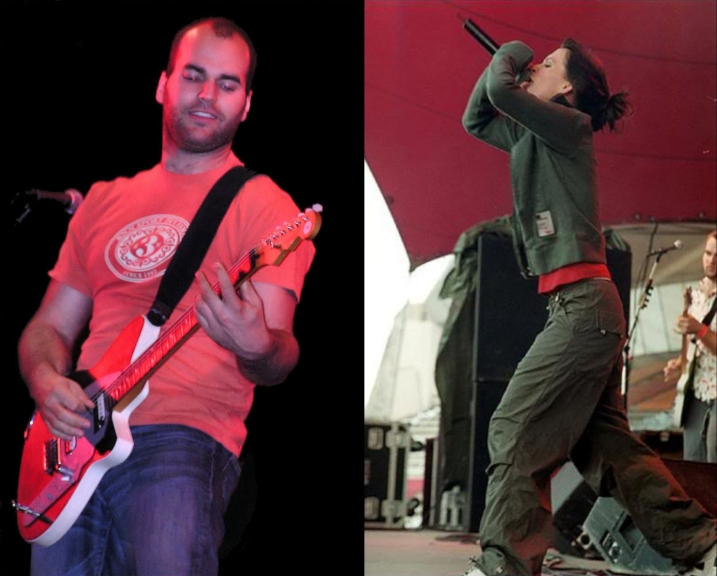
“It holds its own purely as a playable guitar. It’s really cool for the traveling musician – you can bring it on a flight and it fits beneath the seat”: Why Steve Stevens put his name to a foldable guitar
“Finely tuned instruments with effortless playability and one of the best vibratos there is”: PRS Standard 24 Satin and S2 Standard 24 Satin review

![A black-and-white action shot of Sergeant Thunderhoof perform live: [from left] Mark Sayer, Dan Flitcroft, Jim Camp and Josh Gallop](https://cdn.mos.cms.futurecdn.net/am3UhJbsxAE239XRRZ8zC8.jpg)







